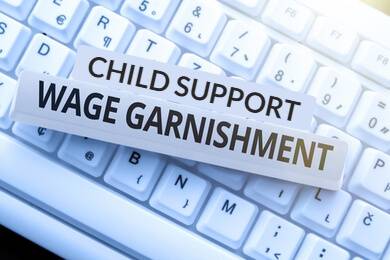
 847-995-1205
847-995-1205
Are There Legal Consequences for Employers Who Ignore an Employee's Child Support Wage Garnishment Order?

In the best of circumstances, a parent who is ordered by the court to pay child support obeys that order and meets that obligation according to the schedule set by the court. Unfortunately, there are many parents who – for a variety of reasons – do not make their payments and an arrearage begins to build up. In these situations, the parent who is not receiving the payments can request the court to garnish the non-paying parent's wages. In most situations, the court agrees, and a wage garnishment order is issued. In these cases, what are the obligations of the employer and what happens if the employer fails to comply with the order?
Wage Garnishment Process
When a parent petitions the court for wage garnishment of the employee who is not making their child support payments, that garnishment can address both back payments the employee may owe, as well as current and ongoing payments. It can also include any interest the employee owes. The court can order that up to 50 percent of the employee's wages can be deducted from their checks each pay period. If there are no other obligations of child support the employee has for other children, then the court can order up to 60 percent of the employee's pay can be deducted. The court can also order an additional five percent of the wages garnished if the employee is more than three months behind in their obligation.
An employer who receives notification of an employee's wage garnishment for child support is required by law to comply with that notification. It is the employer's responsibility to deduct the amount specified in the notification from the employee's net pay. The net pay is what is left over after taxes and other mandatory deductions are made from the employee's gross pay. The employer is required to then send the garnished wages to the Illinois State Disbursement Unit. That agency will then send the funds to the receiving parent.
If an employer fails to comply with the order, they can face serious consequences. If an employer fails to garnish the employee's wages as the notice orders, they can be fined up to $100 per day in late fees. These late fees will continue to add up until the entire amount of support is paid. This is why it is important to set up the wage deduction as soon as your company is notified of the garnishment.
If the employee no longer works for your company, you need to notify the state agency that sent you the notification right away. Ignoring the notice could also result in penalties and hefty fines.
Contact an Illinois Employment Lawyer
If you have run into issues because your company failed to comply with an order to withhold a portion of an employee's wages for child support, contact a Schaumburg, IL employment law attorney for legal assistance. Call The Miller Law Firm, P.C. at 847-995-1205 to schedule a free consultation and find out how our firm can help.
Sources:
https://www.ilga.gov/legislation/ilcs/ilcs4.asp?ActID=2017&ChapterID=56&SeqStart=96800000&SeqEnd=98200000
https://www.dol.gov/agencies/whd/fact-sheets/30-cppa
https://newhire.hfs.illinois.gov/NewHireWeb/IncomeWithholding.jsp
Contact Us


Schaumburg, IL 60173
Phone: 847-995-1205
